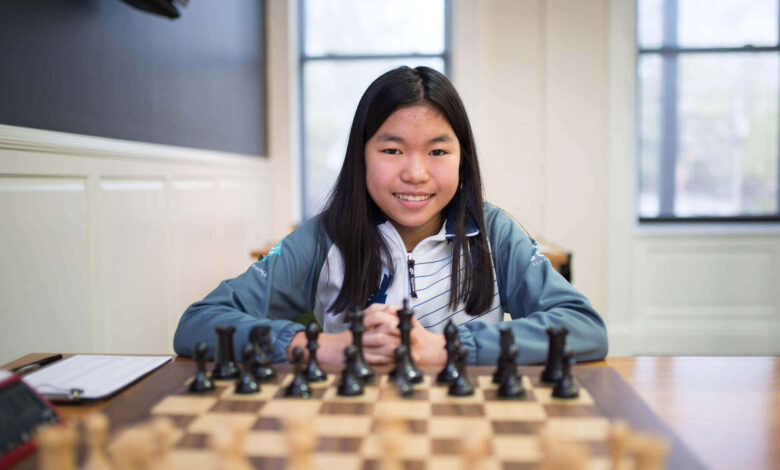World Chess Federation Bars Transgender Women from Competing in Women’s Events: An In-Depth Analysis

In recent years, discussions surrounding gender identity and inclusivity have taken center stage across various sectors of society. One such domain is the world of competitive sports, where policies and regulations have evolved to accommodate transgender individuals while ensuring fair competition. The World Chess Federation (FIDE), the governing body for international chess competitions, has found itself embroiled in a contentious debate concerning the participation of transgender women in women’s events. This article delves into the multifaceted aspects of this issue, examining the arguments from different perspectives and shedding light on the challenges faced by FIDE in addressing the concerns of both transgender rights advocates and those advocating for the integrity of competitive chess.
Understanding Gender Identity
Before delving into the debate itself, it is crucial to understand the concept of gender identity. Gender identity refers to an individual’s deeply-felt sense of their own gender, which may or may not align with their assigned sex at birth. Transgender individuals are those whose gender identity does not correspond with their assigned sex, and they often undergo various processes, including hormone therapy and surgeries, to align their physical appearance with their identified gender. The recognition of transgender rights and inclusion has been a defining social issue of the 21st century, impacting not only legal frameworks but also sports organizations worldwide.
Transgender Inclusion in Sports
The conversation about transgender inclusion in sports has gained traction in recent years, sparking debates about how to balance inclusivity with the principles of fair competition. The International Olympic Committee (IOC) and other sporting bodies have developed guidelines that consider both athlete inclusivity and maintaining a level playing field. These guidelines typically involve certain hormone level requirements and specific waiting periods after transitioning before an athlete can compete in a gender category different from their assigned sex at birth.
FIDE’s Controversial Decision
FIDE has found itself at the crossroads of this ongoing discourse. In May 2023, the federation announced its decision to prohibit transgender women from competing in women’s events, citing concerns over potential advantages due to residual physiological attributes. The decision was met with a range of reactions, with some applauding the federation for prioritizing fairness in competition and others criticizing it for excluding transgender individuals from the sport they love.
Advocates for the FIDE Decision
Supporters of FIDE’s decision argue that the move is a necessary step to maintain the integrity of women’s chess events. They posit that residual physiological attributes retained by transgender women who have undergone hormone therapy and surgery could potentially confer advantages in certain areas of the game. For instance, some assert that muscle memory, developed during periods of higher testosterone levels, could provide a competitive edge in specific chess strategies. Proponents of this viewpoint also point to the principle of fair competition, suggesting that accommodating transgender women could compromise the chances of cisgender women competitors.
Critics of the FIDE Decision
Critics of FIDE’s decision, on the other hand, view the policy as discriminatory and regressive. They argue that the decision overlooks the complexities of gender identity and diversity within the transgender community. Many critics assert that FIDE’s stance is based on flawed assumptions about the impact of hormone therapy and surgeries on athletic performance. They emphasize that transgender women undergo extensive medical and social transitions, resulting in changes to their physical attributes and capabilities that align more closely with those of cisgender women.
The Intersection of Science and Policy
Central to the FIDE debate is the question of whether there is concrete scientific evidence to support claims of an inherent advantage held by transgender women in women’s chess events. While some studies have explored potential benefits in specific sports due to residual physiological attributes, the applicability of these findings to chess remains contested. Chess is a cognitive sport that relies heavily on strategy, calculation, and decision-making, factors that might not be significantly influenced by residual physical attributes.
Some researchers argue that advantages attributed to testosterone levels are often overestimated, neglecting the broader skill sets that determine success in chess. Cognitive abilities, pattern recognition, and analytical skills are pivotal in chess performance, potentially outweighing any perceived advantages from past physiological attributes.
The Way Forward: Finding Common Ground
As FIDE grapples with its decision and the ensuing backlash, finding a path forward that respects both competitive integrity and transgender rights is imperative. Open dialogue between FIDE officials, transgender players, experts in sports science, and advocates for gender equality is vital to reaching a balanced solution. Transparent discussions should focus on empirical evidence, the specific nature of chess as a sport, and the evolving landscape of transgender inclusion in sports.
One possible approach is the implementation of case-by-case evaluations, considering the unique circumstances of each transgender player. This approach could involve assessing factors such as the length of time since transitioning, the impact of hormone therapy on physical attributes, and an individual’s overall performance history in chess tournaments. By incorporating a nuanced evaluation process, FIDE could potentially address concerns from both sides of the debate and arrive at a more equitable resolution.
The FIDE’s decision to bar transgender women from competing in women’s events within the realm of chess has ignited a broader conversation about gender identity, sports inclusivity, and the challenges of ensuring fair competition. As society navigates the complexities of this issue, it is essential to acknowledge the nuances of gender identity and engage in constructive discourse that considers both the principles of fairness in sports and the rights of transgender individuals. The outcome of FIDE’s deliberations will likely have a lasting impact on the larger dialogue surrounding transgender inclusion in sports and the quest for an equitable balance between inclusivity and competitive integrity.
In moving forward, it is crucial for FIDE to strike a balance that respects the principles of both fair competition and inclusivity. By engaging in open dialogue, considering scientific evidence, and recognizing the unique circumstances of transgender individuals, FIDE has an opportunity to set a precedent that reflects the evolving understanding of gender identity while maintaining the integrity of the sport of chess. The journey toward a resolution may be complex, but it is through thoughtful and informed discussions that societies and sports organizations can pave the way for a more inclusive and equitable future.



